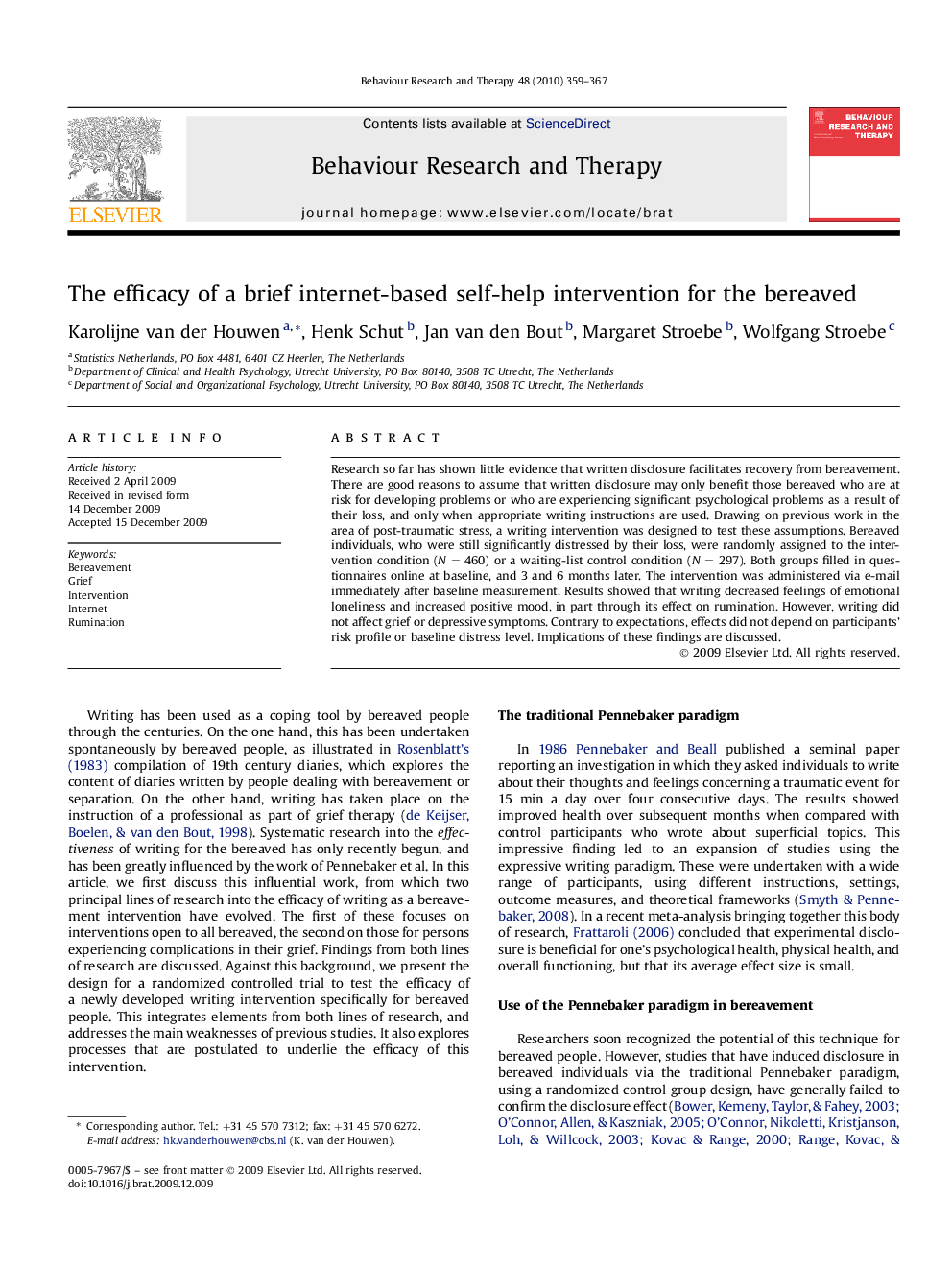| Article ID | Journal | Published Year | Pages | File Type |
|---|---|---|---|---|
| 10444667 | Behaviour Research and Therapy | 2010 | 9 Pages |
Abstract
Research so far has shown little evidence that written disclosure facilitates recovery from bereavement. There are good reasons to assume that written disclosure may only benefit those bereaved who are at risk for developing problems or who are experiencing significant psychological problems as a result of their loss, and only when appropriate writing instructions are used. Drawing on previous work in the area of post-traumatic stress, a writing intervention was designed to test these assumptions. Bereaved individuals, who were still significantly distressed by their loss, were randomly assigned to the intervention condition (NÂ =Â 460) or a waiting-list control condition (NÂ =Â 297). Both groups filled in questionnaires online at baseline, and 3 and 6 months later. The intervention was administered via e-mail immediately after baseline measurement. Results showed that writing decreased feelings of emotional loneliness and increased positive mood, in part through its effect on rumination. However, writing did not affect grief or depressive symptoms. Contrary to expectations, effects did not depend on participants' risk profile or baseline distress level. Implications of these findings are discussed.
Related Topics
Health Sciences
Medicine and Dentistry
Psychiatry and Mental Health
Authors
Karolijne van der Houwen, Henk Schut, Jan van den Bout, Margaret Stroebe, Wolfgang Stroebe,
